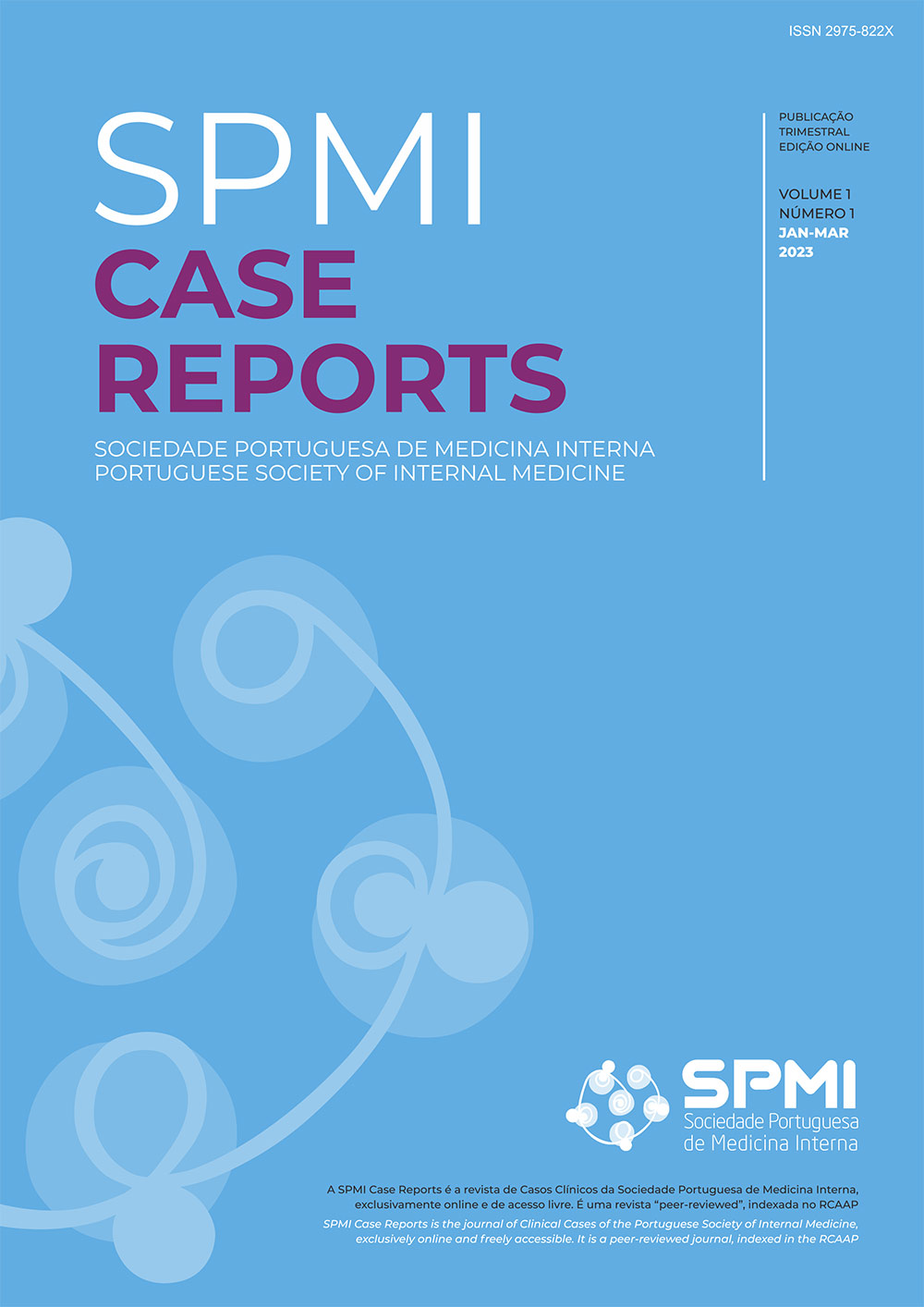Overwhelming Post-Splenectomy Infection Caused by Capnocytophaga Spp.: Case Report
DOI:
https://doi.org/10.60591/crspmi.7Keywords:
Capnocytophaga, Postoperative Complications, Splenectomy/adverse effectsAbstract
The spleen performs important immunological and hematological functions. Splenectomy is performed in hereditary spherocytosis, where the erythrocytes are destroyed in the spleen due to structural defects.
Splenectomized patients have an increased risk of infection and are predisposed to a condition called over-whelming postsplenectomy infection (OPSI). OPSI initially presents with fever, myalgia, headache and vomiting.
Capnocytophaga spp. colonizes oral flora and can cause opportunistic infections in splenectomized patients.
The authors report the case of a splenectomized 38-year-old man admitted with a viral-like syndrome, with fever, vomiting and myalgias, suggesting an OPSI. Blood cultures were positive for Capnocytophaga spp. Despite the correct measures applied, the patient had a rapid evolution on septic shock leading to death.
The authors aim to alert to this rare condition associated with high mortality, to improve the survival by timely identification and immediate management.
Downloads
References
Tahir F, Ahmed J, Malik F. Post-splenectomy Sepsis: A Review of the Literature. Cureus. 2020;12:e6898. doi: 10.7759/cureus.6898.
Iolascon A, Andolfo I, Barcellini W, Corcione F, Garçon L, De Franceschi L, et al; Working Study Group on Red Cells and Iron of the EHA. Recommendations regarding splenectomy in hereditary hemolytic anemias. Haematologica. 2017;102:1304-13. doi: 10.3324/haematol.2016.161166.
Luu S, Spelman D, Woolley IJ. Post-splenectomy sepsis: preventative strategies, challenges, and solutions. Infect Drug Resist. 2019;12:2839-51. doi: 10.2147/IDR.S179902.
Ornella P. Management of sepsis in asplenic patients. Transl Med UniSa. 2013;6:1.
Hopkins AM, Desravines N, Stringer EM, Zahn K, Webster CM, Krajick K, et al. Capnocytophaga bacteremia precipitating severe thrombocytopenia and preterm labor in an asplenic host. Infect Dis Rep. 2019;11:8272. doi: 10.4081/idr.2019.8272.
Isabel R. Capnocytophaga sputigena bacteremia in a neutropenic host. IDCases. 2019 Apr;17:e00536. doi: 10.1016/j.idcr.2019.e00536.








